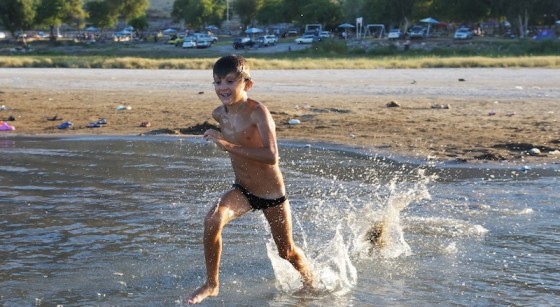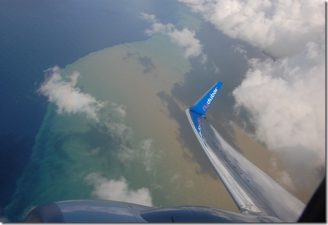 Despite recent and heavy rains in Israel, the Sea of Galilee is still three meters lower than it should be
Despite recent and heavy rains in Israel, the Sea of Galilee is still three meters lower than it should be
Unusually heavy rains have helped restore water levels in Israel’s main water source, the Sea of Galilee or Lake Kinneret; a body of water that has been known since ancient times and until recently was also the primary water source for the Lower Jordan River. Due to increasingly dry conditions, Israel has had to depend more on desalination plants, such as ones in Ashkelon, Palmachim and Hadera, to supply the country’s population with needed fresh water. An abundance of winter rainfall has replenished the Sea of Galilee, but it’s not enough. To make up for its water shortcomings, desalination is an option. But it is expensive and has a number of drawbacks, including causing the Mediterranean Sea to become more salty due to saline residue from the desalination process being returned to the sea.
Will the Lower Jordan River also benefit from Israel’s rainy winter?
But Mother Nature has been kind this past winter; and as a result of heavier than normal rainfall, the Sea of Galilee‘s water level has risen by two meters to its highest level since the winter of 2005. While this replenishment has helped the country’s ongoing water crisis, the lake is still more than three meters below a satisfactory level; and the country’s coastal aquifer, another important water source, is also far from being replenished.
As a result, Israel’s Mekorot Water Company estimates that by the year 2013, 75 percent of the country’s waster needs will come from desalination with two additional desalination plants being built at Soreq and Ashdod.
Environmentalists in Israel have been against the reliance on desalination to solve the country’s water needs. Some of them, including Friends of the Earth Middle East believe that both Israel and the Palestinian Authority can conserve water resources by recycling waste and sewage water. Israel already recycles as much as 70% of it’s “grey” and other waste water, one of the highest percentages for developed countries.
Taking Israel’s water recycling efforts into account, and with mutual cooperation by the Palestinians, water conservation by the two peoples could go a long way towards solving their water mutual needs.
Image of Sea of Galilee from Shutterstock
More articles on water issues in Israel:
Army Sewage Irrigates Nature Park in Israel
Water Pollution in Israel Threatens People, Animals, Plants
Israel Sends Wrong Message About Desalination
New Hadera Desalination Plant May Restore Water to Lower Jordan River
Unholy Waters; the Lower Jordan River is Nearly Dead



